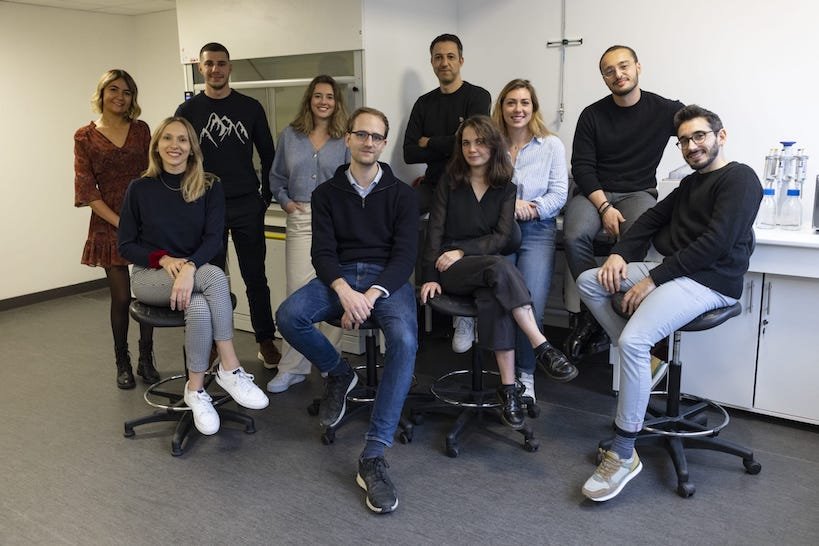The factories that process our food and beverages (newsflash: no, it doesn’t come straight from a farm) have to be kept very clean, or we’d all get very ill, to be blunt. Ensuring that usually entails deploying petri-dish-based microbiological monitoring, hardware and waiting for tests to return from labs. A new startup has plans to use deep-learning algorithms to speed up this process.
Spore.Bio is a French startup that has developed a new pathogen detection methodology. It works by shining an optical light on surfaces where clean food has been, and doing the same with unclean food. It then compares the two data sets to detect when a surface is not clean.
Off the back of this solution, it’s now raised €8 million in pre-seed funding led by London’s LocalGlobe VC. Also participating was EmergingTech Ventures, No Label Ventures, Famille C (Clarins Family Office), Better Angle, Plug&Play Ventures, Entrepreneur First, Kima Ventures, Raise Sherpas, Fair Equity, Sharpstone Capital and Angels.
“Basically, we send light to the sample to take kind of a really fancy snapshot,” explained Amine Raji, the CEO, in an interview. Raji, who previously worked for Nestlé, co-founded the startup with CTO Maxime Mistretta, and COO Mohamed Tazi, who is previously the founder of Gymlib.
The images that Spore.Bio produces are being read beyond what the naked eye can see. “We have machine learning models that will recognise the spectral nature of the bacteria in this snapshot. To make our system work, we have to train it with lots of samples of foods and beverages, contaminated and non-contaminated, to create this huge data set. That is a huge asset for us. That’s why we signed some contracts with some of the biggest manufacturers in the world.”
Spore.Bio is a startup very much still in its early stages. The raise will be used in part to work on a device to handle this monitoring more easily.
“We’re building a hardware device that is able to detect pathogens immediately, directly on the factory floor. This handheld device makes it easier to carry out quality sampling, providing almost real-time insights into any potential bacteria in the factory,” Raji claimed.
However, he stopped there in explaining further, “The hardware is based on advanced photonic technologies. We are currently patenting our technology so we can’t divulge any more,” he added.
As with any hardware — especially ideas that have yet to be built into actual devices — there will need to be a number of steps taken before the device hopes to see the light of day as a product.
Part of that will involve navigating existing, narrow regulations around food production. In Europe, food manufacturers must adhere to the “General Food Law”.
Separately, there is an independent certification that means any new testing product could take 12 to 18 months to get in the food industry (ISO 16140 – Microbiology of the food chain).
“We are already working with certifying bodies to get this certification, but this is not mandatory to start commercialization,” said Raji He added that the product is undergoing a “stringent testing and development process” to ensure it is as accurate as possible to detect bacteria and pathogens in the factory.
However there are clearly some opportunities for disruption, too. Factories must regularly test products to ensure that there are no bacteria or pathogens present, but the technology to test for bacteria hasn’t evolved in decades. Currently, samples must be sent away to offsite labs, which can take between five and 20 days to test, slowing down decision-making and preventing issues from being quickly rectified. And there is also a cost to that delay.
Spore.Bio claims its solution will eventually work almost in real time. The implications are that a food processor will end up with less down-time. And that is significant, because according to research by Deloitte, the cost of downtime to the global food and beverage processing industry alone is estimated to be in the region of $50 billion annually. (Of course, Deloitte has some skin in the game, so take its big number with a grain of salt.)
Although the the product isn’t currently live, Raji said it has a “waitlist” for its first prototypes, which they are hoping to deploy globally by next year to clients’ sites.
Competitors include US-based PathogenDX which has raised $11.6M for its various other solutions.
Read the full article here










